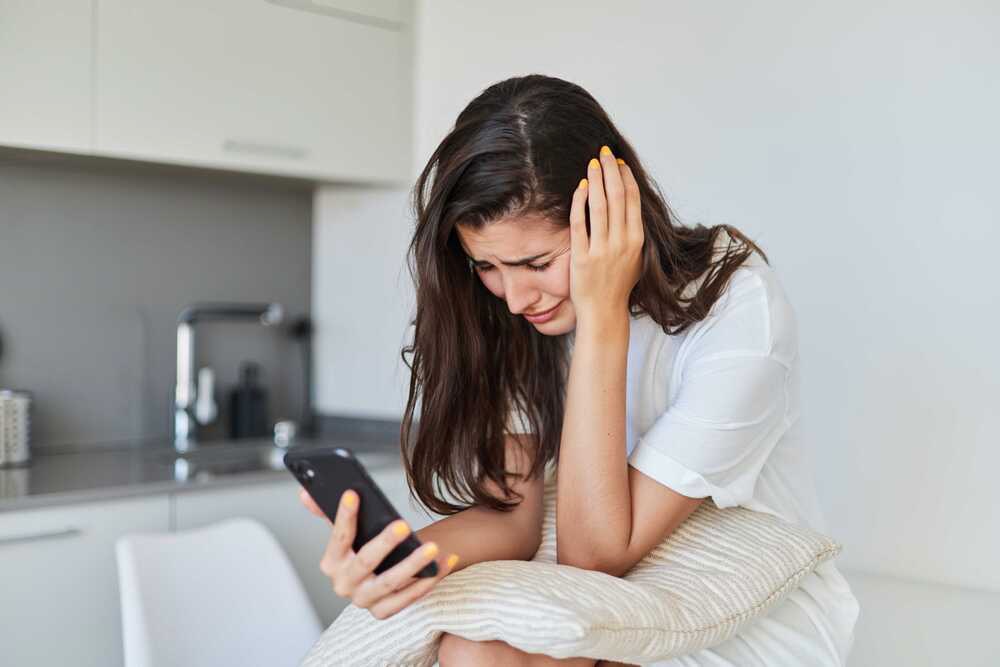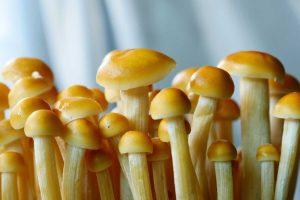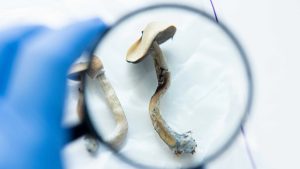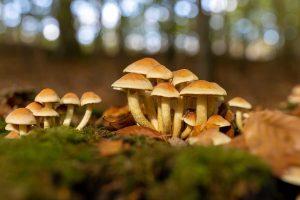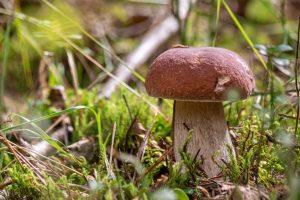Psilocybin Depression Therapy
- Jake Peter
- Published: October 19, 2023
- Fact-checked by Dr. Desiree Granados
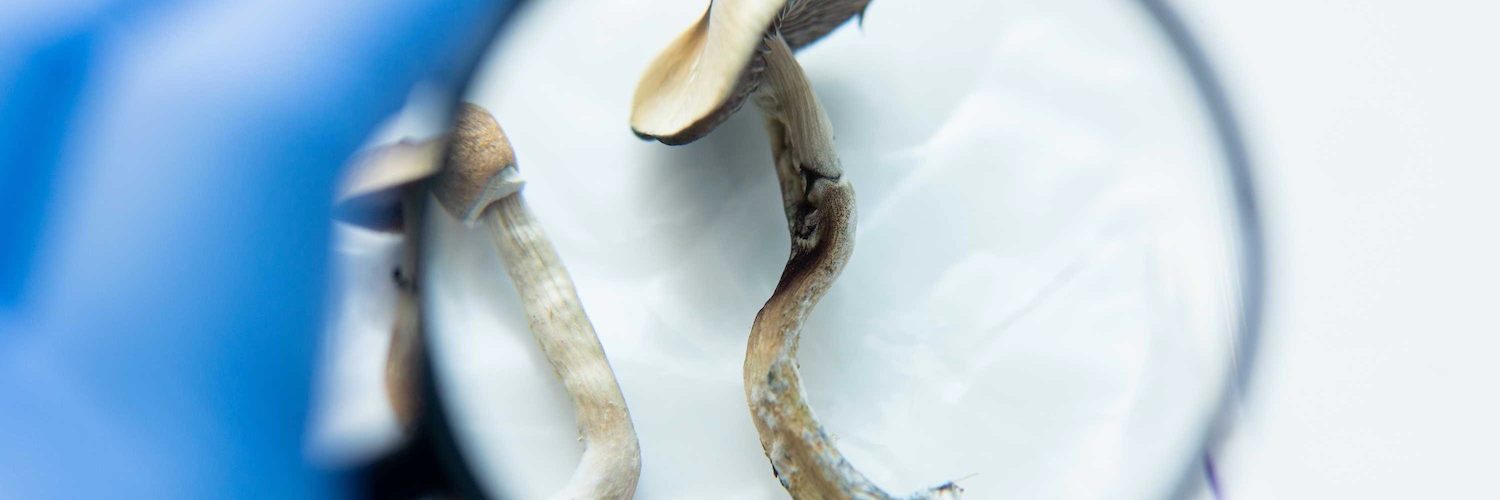
Depression is a mental health disorder that affects millions of people worldwide. It can cause feelings of sadness, hopelessness, and worthlessness that can lead to a loss of interest in activities patients typically enjoy. Depression is also one of the most common mental health disorders in the United States, with 8% of American adults experiencing at least one major depressive episode in 2021.
Medications such as antidepressants and antianxiety medications are the most commonly used treatments for depression. However, talk therapies, cognitive behavioral therapies, and psychotherapies can be helpful too.
While there are many treatments available for depression, not everyone responds well to traditional therapies. In recent years, there has been a growing interest in using psilocybin therapy for depression.
What Is Psilocybin Therapy and How Does it Work?
Psilocybin therapy is a form of treatment that uses psychedelic drugs to help people with mental health conditions such as depression. The drugs are thought to help people access their subconscious mind so that they can address the underlying causes of their mental health issues.
Treatment with psilocybin involves taking small doses of psilocybin under the supervision of a trained professional. A typical psilocybin-assisted treatment therapy cycle will involve an introduction and question segment, followed by the main therapy session (around 6-8 hours).
Afterward, the patient meets with a therapist who guides them through a debriefing process.
How Effective Is Psilocybin Therapy for Depression?
In numerous studies, psychopharmacology researchers, clinicians, and other healthcare professionals have administered single doses of psilocybin to patients suffering from severe depression and/or anxiety. According to a study published in 2022, many of the participants partaking in these psilocybin therapy sessions reported significant improvements in mood and anxiety levels within four weeks. These positive antidepressant effects even lasted up to six months for some patients.
Many people who undergo psilocybin therapy report experiencing relief from their major depression and generally feeling more hopeful. Some experience euphoria as a result of the psychedelic drug and researchers’ psychological support. Lastly, some patients find that psilocybin reduces their need for antidepressants and even helps mitigate chemical addictions such as alcohol dependence.
Other reported effects of psilocybin include:
- Increased sense of well-being
- Decreased fear and anxiety
- Enhanced creativity and imagination
- Improved concentration and attention
- Reduced stress and tension
- Increased sociability
There are currently numerous FDA-approved medications for treating depression. Unfortunately, these drugs have side effects such as nausea, drowsiness, dry mouth, constipation, headaches, dizziness, insomnia, sexual dysfunction, and weight gain. Fortunately, there is evidence that psilocybin helps patients suffering from treatment-resistant depression (depression that persists despite antidepressant use).
Although research continues, it appears that psilocybin doesn’t induce the same side effects in patients. Findings suggest it could become a standard part of treatment programs for depression in the future.
Psilocybin Therapy Side Effects and Risks
As with any other drug, substances containing psilocybin carry some risk of side effects for users. Fortunately, there are relatively few side effects associated with psilocybin therapy for depression.
Those side effects can include:
- Confusion
- Constipation
- Dizziness
- Drowsiness
- Dry Mouth
- Headaches
- Hallucinations
- Impaired Concentration
- Lack of coordination
- Nausea and vomiting
- Paranoia
Because psilocybin can have strong mind-altering effects, it’s important to be in a safe and supportive environment when undergoing this type of therapy. As long as you’re working with a trained professional in a legitimate treatment program, you’ll be able to minimize your risk of experiencing adverse effects from psilocybin.
How to Set Up a Psilocybin Therapy Appointment
Oregon and Colorado are currently the only U.S. states that have legalized psilocybin for medical use. Psilocybin for therapeutic use is also legal in the city of Ann Arbor, Michigan. Several other cities like Santa Cruz and Oakland, California; Seattle, Washington; and parts of Massachusetts have decriminalized the substance, thereby paving the way for eventual legalization.
Colorado hasn’t finalized its regulations for licensed healing centers and practitioners yet, but prospective patients can receive counseling and guidance from services like Reflective Healing as long as they supply their own psychedelic mushrooms. Colorado is expected to finalize their regulations for healing centers and offer licensing by September of 2024.
In Oregon, you must contact a licensed service center directly to schedule a psilocybin therapy session. You can find licensees in the Oregon Psilocybin Services License Directory.
If you live in a region that hasn’t yet legalized psilocybin for medical use, you can sign up to participate in a psilocybin clinical trial.
How we reviewed this article:
- Transforming the understanding and treatment of mental illnesses. https://www.nimh.nih.gov/health/statistics/major-depression
- Psilocybin Treatment for Major Depression Effective for Up to a Year for Most Patients https://www.hopkinsmedicine.org/news/newsroom/news-releases/2022/02/psilocybin-treatment-for-major-depression-effective-for-up-to-a-year-for-most-patients-study-shows
- Depression Medicines https://www.fda.gov/consumers/womens-health-topics/depression-medicines
- Single-Dose Psilocybin for a Treatment-Resistant Episode of Major Depression https://www.nejm.org/doi/full/10.1056/NEJMoa2206443
- Psilocybin Therapy May Work as Well as Common Antidepressant https://www.scientificamerican.com/article/psilocybin-therapy-may-work-as-well-as-common-antidepressant/
- Psilocybin (magic mushrooms): What it is, effects and risks https://www.medicalnewstoday.com/articles/308850
- As Evidence For Treatment Potential Grows, So Has Psychedelic Legality https://www.medicalnewstoday.com/articles/308850
- Psilocybin Assisted Therapy in Colorado https://www.medicalnewstoday.com/articles/308850
- Here’s how Colorado’s rule-making for psychedelic ‘healing centers’ begins https://www.9news.com/article/news/local/colorado-begins-rule-making-psychedelic-healing-centers/
- How To Join a Psychedelic Clinical Trial
https://psychedelic.support/resources/how-to-join-psychedelic-clinical-trial/
Current Version
October 19, 2023
Written By
Jake Peter
Fact-checked By
Dr. Desiree Granados
Editorial Process
Our Editorial Process

Jake Peter received his journalism degree from Emerson College and has been writing content for the Sanctuary Wellness Institute since 2021. He is passionate about all things cannabis.

